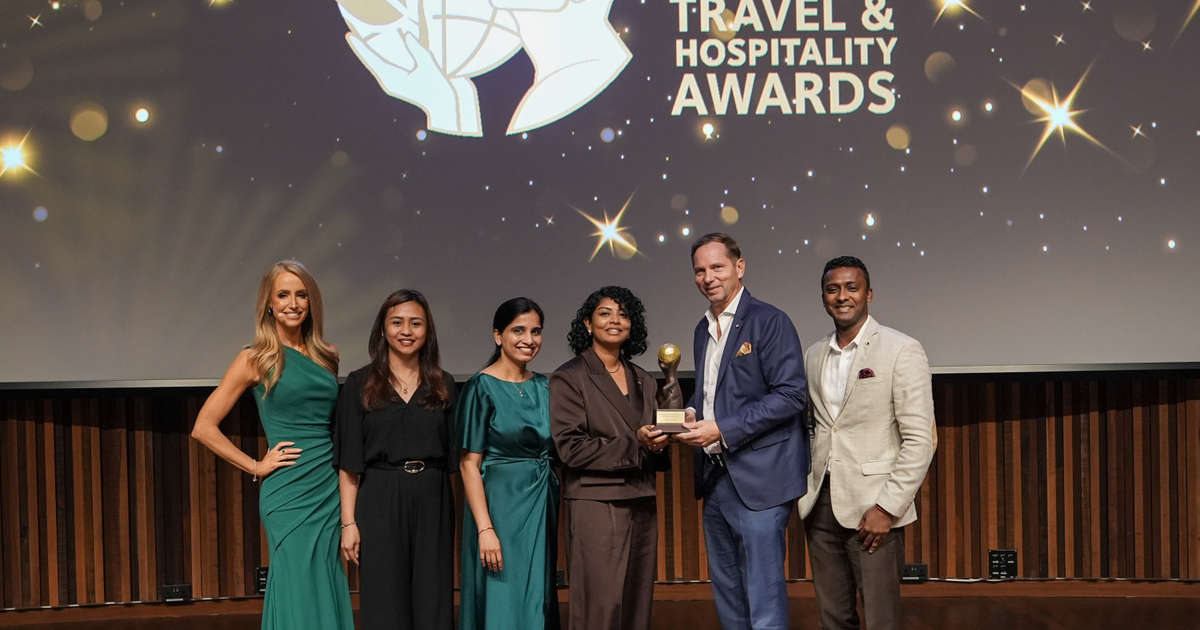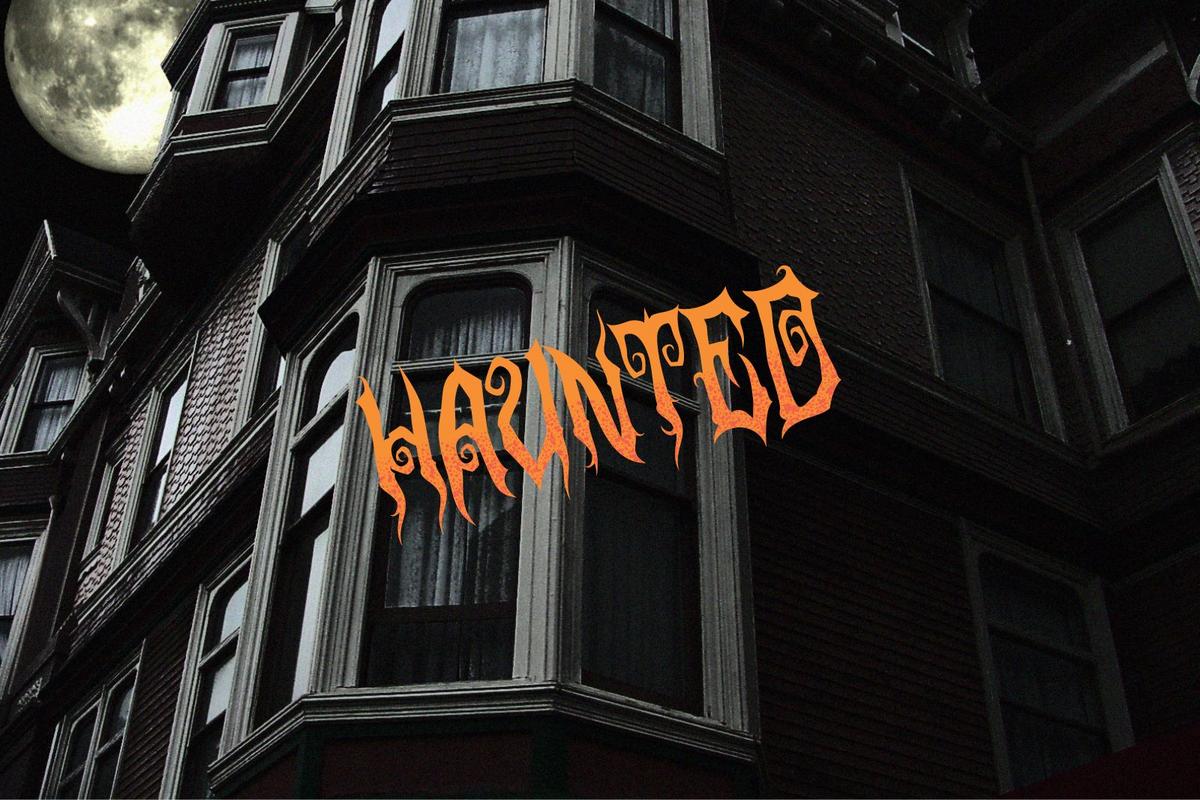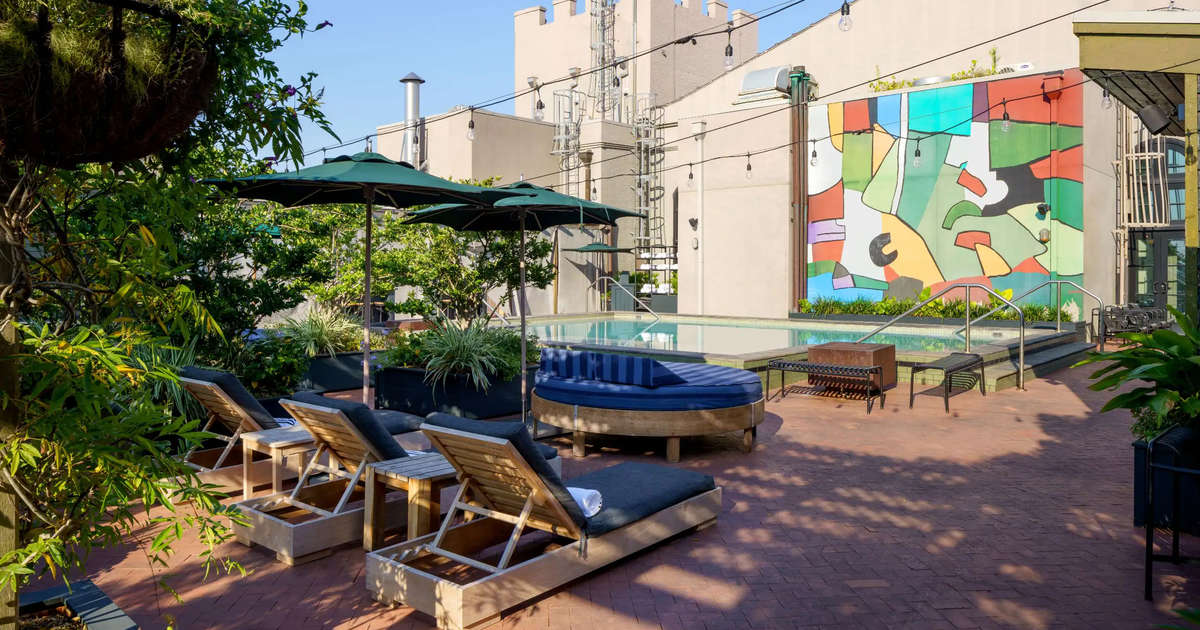
HRI Hospitality, the hotel acquisition and management wing of the sprawling New Orleans-based real estate empire founded by Pres Kabakoff and Edward Boettner in the early 1980s, has become a major hotel operator in its own right in recent years.
With its latest deal — taking a 20% stake in the Hilton New Orleans on St. Charles Avenue, along with 80% owner Certares, a New York private equity investor — HRI Hospitality owns and or manages 32 hotels across 13 states. With a portfolio of nearly 6,000 rooms, it now ranks as one of the largest midbracket operators in the country.
That gives Michael Coolidge, HRI Hospitality’s chief investment and development officer, a good perch from which to keep tabs on a hotel sector that has been rapidly evolving, especially since the coronavirus pandemic.
Coolidge, 52, has been in his HRI role for over a decade, a period that has seen significant expansion for HRI’s hotel interests. He’s been in hospitality investment since graduating from Cornell University in the late 1990s and now splits his time between Denver and the Crescent City.
Here he discusses plans for the Hilton and its historic, gothic-style building in the Central Business District, as well as the broader trends he sees in the hotel sector.
The interview has been edited for length and clarity.
Sunstone Hotel Investors, the former owner of your latest acquisition, the Hilton New Orleans on St. Charles Avenue, said they had decided to take a loss on the property rather than make the needed investment to upgrade the hotel. What made you want to buy into the 252-room property and take on management?
We’ve actually spent some time on that property. Being local and being invested in the market, we’re staying attuned to the the opportunities when people maybe are motivated to get out. We had brief conversations with the seller post-COVID, but they decided to hold at that time. We took another look in the fall. I spent a bunch of time on what the capital needs of the property were. Then they decided to do a public process and market it fully with a broker. So, we went through that and we had done a lot of due diligence on the building.
What’s the plan for capital spending? What kind of “refresh,” as you say in the business, does it need and what new features, if any?
There’s always just the normal refresh of buildings, especially in hotels: carpet and furniture fixtures, etc. But then there’s also the kind of larger-scale mechanical requirements that need to be continuously updated and redone, including elevator systems and so forth. So, we will be doing updates to the elevators, some of the major mechanical systems in the building, and then a full refresh of the guest rooms and the public space. We’re planning also to add a lobby bar. We are happily maintaining the great relationship with Luke (a well-established Creole brasserie operated by BRG Hospitality, formerly chef John Besh’s group, which occupies a ground-floor corner of the hotel). But we’d like to add a little bit more activity level within the lobby.
We’ve seen some significant hotel sales in New Orleans: the Ritz-Carlton on Canal, connected to the Courtyard by Marriott, for maybe around $200 million; the New Orleans Marriott Courtyard & SpringHill Suites last year, for $73 million; before that, the Bourbon Orleans for $81 million. What’s going on?
It’s really interesting times for hotels and the whole commercial real estate market. It feels like everything had been very frozen for a long time. Now, you’ve got owners, similar to the seller of the Hilton on St. Charles, that have been in assets for a long time, it’s in need of capital investment and they’re asking, ‘Do I want to double down or do I want to sell?’ We’ve seen a wave of properties that all of a sudden have hit the market. An unusually high number in New Orleans, though I think not really tied together other than just a lot of it in the same category, just needing a refresh or capital investment. So, you’ve seen about a half dozen major assets on the market around the same time.
Talk a bit about how HRI — originally Historic Restoration Inc. — has evolved?
It started in the early ’80s with Pres Kabakoff and Ed Boettner and conversion of warehouses into apartments and multi-family. We did our first hotel deal in 1992, the Hyatt Centric in the French Quarter, a conversion of the old D.H. Homes department store building. It grew from there throughout the Gulf, Southeast into the 2000s. Around 2014, we started really pushing more of a national footprint into top 40 metros. So, markets like Nashville, Tampa, Austin, Philly, Minneapolis, etc.
The company now operates as independent units?
After COVID, we spun the company out into divisions. HRI Hospitality is primarily focused on hospitality but does also focus on larger-scale, mixed use of hotel and multi-family within buildings. HRI Communities is our sister company that focuses solely on (low income housing tax credit) and affordable housing. So, we operate separately but with some crossovers and some shared synergies. (HRI Communities projects include, for example, the Blue Plate Artists Lofts in New Orleans and The Industrialist Hotel, a conversion in Pittsburgh’s Central Business District).
What do you think are the main trends for hotel brands and independent operators in the post-COVID market?
There are a lot of moving pieces. It’s been an interesting time for the industry, coming out of COVID. Group travel as a whole — leisure and business — was slow to recover and is slowly coming back. You’re starting to see in ’25 an uptick in larger convention and corporate travel. Markets such as Orlando, obviously New Orleans, Seattle, Nashville — those with larger convention centers — are seeing recovery. Also, seeing it in the transient leisure side.
The industry is moving toward what is called “select service lifestyle” brands. The Marriott has the AC brand, Hilton has the Tempo brand, Hyatt has Select. Travelers are looking for aesthetically pleasing properties but ones which are really “full service light.” They are able to operate maybe at better margins because they’re not offering as much. We’re big on that segment. You’re also seeing more “soft brand” hotels, unaffiliated, independent properties such as Autograph (Marriott), Curio (Hilton), Tapestry (Hilton), Tribute Portfolio (Marriott), catering to travelers seeking unique, localized and upscale or boutique-style experiences.


